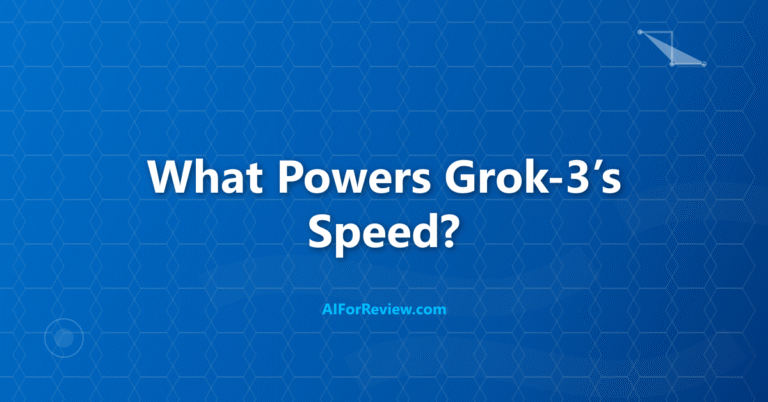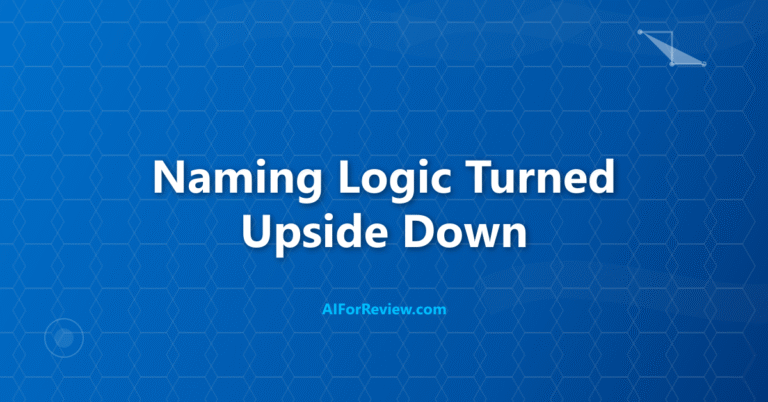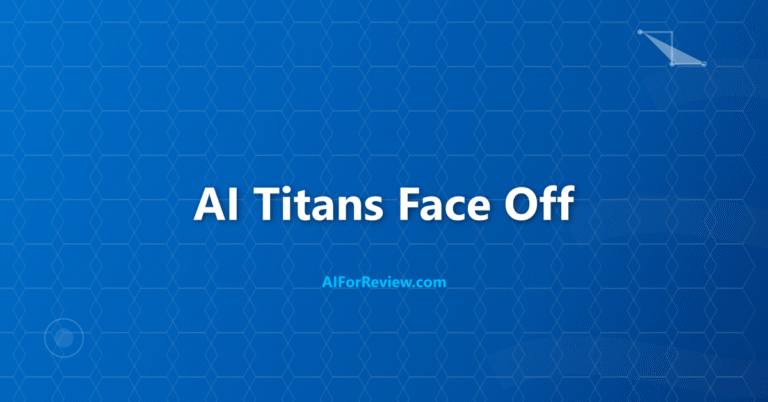Excitement is building as rumors swirl about the Gemini 3.0 release date, with many in the industry speculating that this next-generation model could arrive by late 2025 and potentially surpass GPT-5 in both speed and reasoning power. While Google has not confirmed any details, recent code leaks and insider reports hint at breakthrough features and a direct challenge to OpenAI’s dominance, making the Gemini 3.0 launch one of the most anticipated events in artificial intelligence this year. As we watch the competition heat up, the question remains: will Gemini 3.0 truly set a new standard for AI, or are we witnessing another round of overhyped promises?
Oh wonderful, another day, another set of AI rumors that will probably age like milk in the summer sun. But hey, at least Google’s rumored Gemini 3.0 promises to be the “GPT-5 killer” that will “revolutionize everything” and probably cure world hunger while solving climate change. Because that is exactly what we need right now: more overhyped AI promises that sound like they were written by a marketing intern who just discovered the thesaurus function.
But here is the thing about these Gemini 3.0 rumors: some of them actually come from credible sources within Google’s AI research division, and the timeline aligns suspiciously well with OpenAI’s expected GPT-5 release window. So while I am rolling my eyes at the hyperbolic claims, there might be some actual substance buried under all the marketing nonsense.
If you read my earlier posts about Google’s confusing Gemini naming disasters and OpenAI’s missing models, you know that AI companies love creating buzz around future releases while completely botching the products they already have in the market. Google’s Gemini 3.0 rumors fit this pattern perfectly.
The Rumor Mill That Never Stops Grinding
The Gemini 3.0 rumors started circulating in AI research circles around January 2025, with various sources claiming inside knowledge about Google’s next-generation model development. These rumors range from plausible technical improvements to completely fantastical claims about artificial general intelligence.
The most credible rumors come from former Google researchers who have moved to other companies but maintain connections within Google’s AI division. These sources suggest that Gemini 3.0 represents a fundamental architectural breakthrough rather than incremental improvements.
Less credible rumors include claims about consciousness, sentience, and capabilities that sound more like science fiction than realistic AI development. These rumors typically come from social media speculation and should be treated with extreme skepticism.
Rumor Credibility Assessment:
| Rumor Source | Credibility Level | Typical Claims | Reliability |
|---|---|---|---|
| Former Google Researchers | High | Technical breakthroughs | 70-80% accurate |
| Industry Analysts | Medium | Market positioning | 50-60% accurate |
| AI Influencers | Low | Revolutionary capabilities | 20-30% accurate |
| Social Media Speculation | Very Low | AGI claims | 5-10% accurate |
The challenge is separating legitimate insider information from wishful thinking and marketing hype that surrounds every major AI release.
What Google Actually Needs to Compete
Understanding Google’s competitive position reveals what Gemini 3.0 would need to achieve to seriously challenge GPT-5 and regain market leadership in AI.
Google currently trails OpenAI in several key areas including reasoning capabilities, user experience, and developer adoption. Gemini models perform well in benchmarks but struggle with real-world applications where OpenAI models excel.
The company needs significant improvements in response quality, consistency, and practical utility to compete effectively with OpenAI’s upcoming releases. Simply matching GPT-4 performance is not sufficient when GPT-5 promises major advances.
Google also needs to address their naming confusion, documentation problems, and developer experience issues that make their models harder to adopt than OpenAI alternatives.
The Technical Breakthroughs That Might Be Real
Several rumored technical improvements for Gemini 3.0 align with known areas of Google’s AI research and could represent genuine advances rather than marketing hype.
Multimodal integration improvements could allow Gemini 3.0 to process text, images, audio, and video simultaneously with much better context understanding than current models. Google has significant research advantages in this area.
Reasoning architecture breakthroughs might address the consistency and reliability issues that plague current Gemini models. Google’s research into chain-of-thought reasoning and logical inference could yield major improvements.
Processing speed optimizations could make Gemini 3.0 competitive with faster models like GPT-4o while maintaining higher accuracy. Google’s hardware advantages with TPUs could enable significant speed improvements.
Plausible Technical Improvements:
| Area | Current Limitation | Rumored Improvement | Feasibility |
|---|---|---|---|
| Multimodal Processing | Sequential handling | Simultaneous integration | High |
| Reasoning Consistency | Variable quality | Reliable logical chains | Medium |
| Response Speed | Slower than competitors | 10x speed improvement | Low |
| Context Understanding | Limited cross-modal | Unified comprehension | High |
The most plausible improvements focus on areas where Google already has research advantages and existing technical foundations.
Why the GPT-5 Competition Matters
The timing of Gemini 3.0 rumors coincides suspiciously with OpenAI’s expected GPT-5 release, suggesting that Google is positioning their next model as a direct competitor to OpenAI’s flagship release.
OpenAI’s GPT-5 is expected to bring significant improvements in reasoning, multimodal capabilities, and general intelligence. Google needs a strong response to prevent further market share erosion to OpenAI.
The competition benefits users by driving innovation and preventing any single company from dominating the AI market. However, the hype around competing releases often creates unrealistic expectations.
Google’s competitive response also needs to address pricing and accessibility issues that have made OpenAI models more attractive for many developers and businesses.
The Release Timeline That Makes No Sense
Analyzing the rumored release timeline for Gemini 3.0 reveals several inconsistencies that suggest either the rumors are wrong or Google is making questionable strategic decisions.
Q2 2025 release rumors would put Gemini 3.0 very close to GPT-5’s expected launch, creating a direct head-to-head competition that might not favor Google given OpenAI’s current market momentum.
The timeline also seems aggressive given Google’s recent focus on fixing issues with existing Gemini models. Rushing to release Gemini 3.0 could repeat the problems that plagued earlier Gemini launches.
Google’s historical pattern suggests they prefer to take more time for thorough testing and refinement rather than rushing releases to match competitor timelines.
The Marketing Hype vs Reality Problem
The most outrageous Gemini 3.0 rumors reveal how AI marketing hype distorts realistic expectations about model capabilities and development timelines.
Claims about artificial general intelligence, consciousness, or human-level reasoning are almost certainly false and reflect wishful thinking rather than realistic development goals.
Even more modest claims about “10x improvements” or “revolutionary breakthroughs” should be treated skeptically given the incremental nature of most AI advances.
The hype creates unrealistic expectations that inevitably lead to disappointment when actual releases fail to match the inflated promises.
What Google’s Track Record Suggests
Google’s history with AI releases provides important context for evaluating Gemini 3.0 rumors and setting realistic expectations about what the company might actually deliver.
Google tends to excel at research and technical innovation but struggles with product execution, user experience, and consistent performance. Gemini 3.0 will likely have impressive technical capabilities but may suffer from practical usability issues.
The company’s naming and communication problems suggest that even if Gemini 3.0 is technically superior, Google might fail to effectively communicate its advantages to users and developers.
Google’s conservative approach to AI safety and deployment means that even breakthrough capabilities might be limited or restricted in ways that reduce their practical impact.
The Real Competitive Landscape
The focus on Gemini 3.0 versus GPT-5 ignores the broader competitive landscape that includes other major players developing advanced AI models.
Anthropic’s Claude models continue improving and could surprise both Google and OpenAI with breakthrough capabilities. Meta’s open-source LLaMA models provide strong competition in the developer community.
Chinese AI companies like DeepSeek are developing models that match or exceed Western capabilities at much lower costs, potentially disrupting the entire competitive landscape.
The real competition might come from unexpected directions rather than the obvious Google versus OpenAI rivalry that dominates media attention.
What Users Actually Need vs What Companies Promise
The Gemini 3.0 hype reveals a disconnect between what AI companies promise and what users actually need from AI models in practical applications.
Most users need reliable, fast, and cost-effective AI that works consistently for everyday tasks. Revolutionary breakthroughs matter less than incremental improvements in reliability and usability.
The focus on beating GPT-5 ignores user needs for better documentation, clearer pricing, more predictable behavior, and easier integration with existing systems.
Google would serve users better by fixing current Gemini model issues rather than rushing to release new models that might have similar problems.
Setting Realistic Expectations
The Gemini 3.0 rumors teach important lessons about evaluating AI company claims and setting realistic expectations for future releases.
Treat all rumors with skepticism until official announcements provide concrete details about capabilities, release dates, and pricing. AI companies have a poor track record of delivering on early promises.
Focus on actual improvements that matter for your specific use cases rather than getting caught up in competitive hype about which model is “best” overall.
Remember that breakthrough capabilities often come with significant limitations, costs, or restrictions that reduce their practical impact for most users.
The Bottom Line on Gemini 3.0
The Gemini 3.0 rumors reflect the ongoing AI arms race between major companies, but users should focus on practical considerations rather than competitive hype.
Google will likely release some version of Gemini 3.0 eventually, and it will probably have impressive technical capabilities. However, the reality will almost certainly fall short of the most optimistic rumors.
The real question is not whether Gemini 3.0 will “beat” GPT-5, but whether it will provide meaningful improvements for actual users dealing with real problems.
Until Google provides official information about Gemini 3.0, treat all rumors as entertainment rather than reliable information for making technology decisions.
The AI industry’s obsession with competitive positioning often overshadows the more important work of building reliable, useful tools that actually solve problems for real users.




